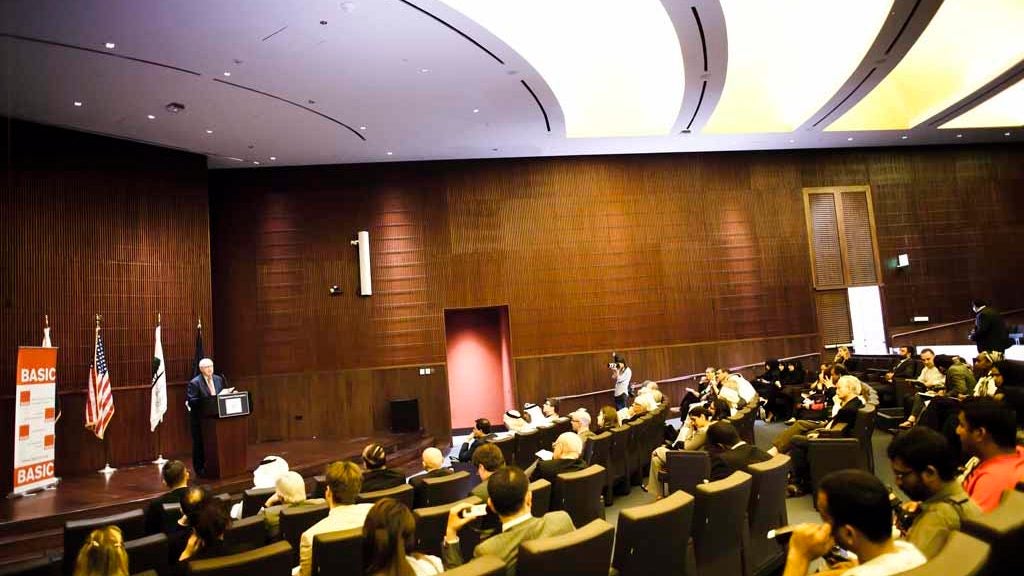Non-Proliferation of N-weapons Conference Begins at SFS-Qatar

Hans Blix, the former UN weapons inspector for Iraq, has warned at the Georgetown University School of Foreign Service in Qatar (SFS-Q) of the “grave danger” that regional uranium enrichment programs pose as a potential catalyst for escalations in the development of weapons of mass destruction by other states in the region. “More fingers on or near the nuclear trigger spells greater danger,” he said on Wednesday at the opening of a conference on Nuclear Non-Proliferation in the Gulf. “A development leading to fewer fingers on or near nuclear triggers should also be considered.”
The two-day conference at Georgetown University’s School of Foreign Service in Qatar has been organized by the British American Security Information Council (BASIC) in association with British and Qatari foreign ministries. Almost 50 distinguished US and European experts, analysts, diplomats and officials from the region, are attending the event. The introductory session was open to students, faculty and staff at the School of Foreign Service which also hosted a workshop on weapons of mass destruction last week. “Most experts are convinced that the Nuclear Non-Proliferation Treaty (NPT) prevented further proliferation; many students, however, do not share this view. It is our job as educators to give our students the tools and the confidence to think creatively about nuclear non-proliferation and to highlight the strengths of the NPT,” said Dr. Kai-Henrik Barth Assistant Dean for Academic Affairs at SFS-Q at the conference opening.
“We want to hear the views of the analysts and officials from the region to hear a different perspective than the drumbeat of war,” said BASIC Executive Director Paul Ingram. “It’s a timely opportunity for the Gulf Cooperation Council states to raise their profile on nuclear disarmament and non-proliferation.”
In addition to Dr Blix, speakers at the event include the chairman of Qatar’s National Committee for the Prohibition of Weapons, Brig-Gen Nassir al-Ali, Dr. Kai-Henrik Barth, Assistant Dean of Academic Affairs at SFS-Q, Ambassador Thomas Pickering and Dr Jim Walsh from the United States, Mark Fitzpatrick from the International Institute for Strategic Studies in London, Ambassador Hamad Al-Kaabi from the UAE, senior analysts from the Gulf Research Center, as well as leading Egyptian and Jordanian experts. The conference is being held the week before President Barack Obama meets with world leaders in South Korea for the second Nuclear Security Summit of his presidency, and the month before the resumption of the diplomatic cycle culminating in the 2015 Review Conference of the Nuclear Non-Proliferation Treaty. It also coincides with the run-up to a crucial new round of negotiations between Iran and the big powers grouped in the P5+1, aimed at reaching agreement on curbing Iran’s nuclear program.
Yesterday’s conference discussions also covered the future of nuclear power in the Persian Gulf one year after the Fukushima disaster. Unlike some European states, the countries of the Gulf Cooperation Council are not deterred in their pursuit of nuclear energy by the meltdown at the Japanese nuclear plant following a massive earthquake and tsunami. But questions also remain about how to avoid the spread of sensitive dual-use fuel cycle activities which could be a source of proliferation.